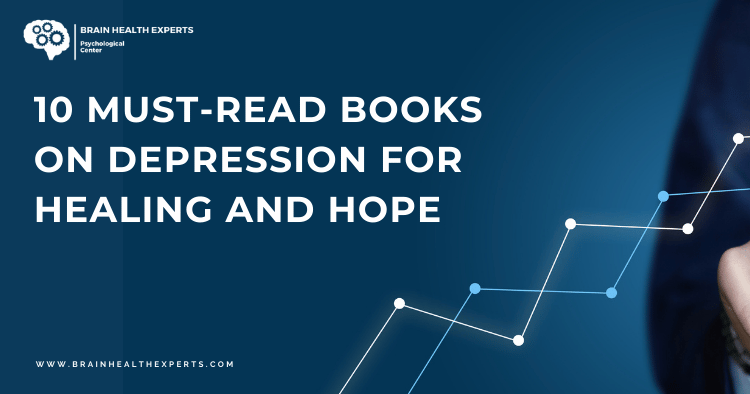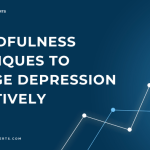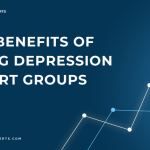Table of Contents
- Introduction
- 1. “The Noonday Demon: An Atlas of Depression” by Andrew Solomon
- 2. “Feeling Good: The New Mood Therapy” by Dr. David D. Burns
- 3. “Lost Connections: Uncovering the Real Causes of Depression – and the Unexpected Solutions” by Johann Hari
- 4. “The Body Keeps the Score: Brain, Mind, and Body in the Healing of Trauma” by Bessel van der Kolk
- 5. “Reasons to Stay Alive” by Matt Haig
- 6. “Mind Over Mood: Change How You Feel by Changing the Way You Think” by Dennis Greenberger and Christine A. Padesky
- 7. “The Gifts of Imperfection” by Brené Brown
- 8. “The Bell Jar” by Sylvia Plath
- 9. “This Too Shall Pass” by Emma E. H. Graham
- 10. “Anatomy of an Epidemic” by Robert Whitaker
- Conclusion
- FAQs
Introduction
Depression can feel like a heavy fog, obscuring joy and hope. If you or someone you love is navigating this difficult terrain, books can be a beacon of light. They offer insights, comfort, and practical strategies to help in the healing process. In this article, we explore ten must-read books on depression that not only address the complexities of mental health but also provide a sense of hope and healing.
“Books are a uniquely portable magic.” – Stephen King
1. “The Noonday Demon: An Atlas of Depression” by Andrew Solomon
Andrew Solomon’s “The Noonday Demon” is a profoundly personal exploration of depression. Solomon candidly shares his own experiences while delving into the historical, cultural, and biological aspects of the illness. This book serves as both a memoir and a comprehensive guide.
Key Takeaways:
- Personal Narratives: Solomon’s reflections resonate deeply, offering readers a sense of connection and understanding.
- Research-Based Insights: The book is rich in research, covering various treatments and perspectives on depression.
“The Noonday Demon is the most comprehensive account of depression that I have ever read.” – The New York Times
Learn more about Andrew Solomon’s work here.
2. “Feeling Good: The New Mood Therapy” by Dr. David D. Burns
Dr. David D. Burns provides a practical toolkit in “Feeling Good”, focusing on cognitive behavioral therapy (CBT) techniques. This book empowers readers to challenge negative thoughts and adopt healthier perspectives.
Key Takeaways:
- Cognitive Restructuring: Readers learn how to identify and combat distorted thinking.
- Exercises and Worksheets: The book includes practical exercises that promote active engagement.
“This book shows you how to think differently, which is the first step in feeling better.” – Publishers Weekly
For more on CBT, visit the American Psychological Association.
3. “Lost Connections: Uncovering the Real Causes of Depression – and the Unexpected Solutions” by Johann Hari
In “Lost Connections,” Johann Hari argues that depression is often rooted in societal factors rather than just chemical imbalances. This book explores disconnection from meaningful work, relationships, and nature.
Key Takeaways:
- Societal Context: Hari emphasizes the importance of addressing the underlying societal issues that contribute to depression.
- Practical Solutions: The book offers actionable insights into reconnecting with the world.
“This is a book that could change lives.” – The Guardian
Explore more about Johann Hari’s findings on his official website.
4. “The Body Keeps the Score: Brain, Mind, and Body in the Healing of Trauma” by Bessel van der Kolk
Bessel van der Kolk’s “The Body Keeps the Score” provides a profound understanding of how trauma affects mental health, including depression. This book integrates science with personal stories.
Key Takeaways:
- Holistic Approach: Van der Kolk discusses various treatment modalities, including yoga and mindfulness.
- Trauma Awareness: Understanding trauma’s impact can aid in healing from depression.
“An essential resource for anyone who wants to understand the interplay between trauma and mental health.” – Psychology Today
For further insights on trauma and its effects, visit the National Institute of Mental Health.
5. “Reasons to Stay Alive” by Matt Haig
Matt Haig’s memoir, “Reasons to Stay Alive,” is a heartfelt account of his struggle with depression and anxiety. Through his journey, he finds light amid darkness and shares that hope is always possible.
Key Takeaways:
- Personal and Relatable: Haig’s narrative offers authenticity and a sense of camaraderie with those suffering.
- Inspirational Messages: The book emphasizes the importance of finding joy in everyday moments.
“A life-affirming book that will resonate with anyone who has ever felt lost.” – The Independent
Discover more of Matt Haig’s work on his official site.
6. “Mind Over Mood: Change How You Feel by Changing the Way You Think” by Dennis Greenberger and Christine A. Padesky
This practical guide, “Mind Over Mood,” equips readers with tools to manage their mood through CBT. It is designed to help individuals break the cycle of negative thinking.
Key Takeaways:
- Structured Approach: The book provides a step-by-step guide to managing emotions.
- Worksheets and Exercises: Facilitates active participation in one’s healing journey.
“A must-read for anyone looking to take charge of their mental health.” – Mental Health America
For more resources on CBT, check out the Beck Institute.
7. “The Gifts of Imperfection” by Brené Brown
Brené Brown’s “The Gifts of Imperfection” encourages readers to embrace vulnerability and imperfections. Her insights into self-acceptance are particularly valuable for those battling depression.
Key Takeaways:
- Vulnerability as Strength: Brown redefines vulnerability as a source of courage and connection.
- Cultivating Worthiness: The book encourages readers to embrace their true selves.
“This book is a guide to living authentically, despite the pressures to conform.” – BookPage
Learn more about Brené Brown’s research on her official website.
8. “The Bell Jar” by Sylvia Plath
Sylvia Plath’s semi-autobiographical novel “The Bell Jar” paints a poignant picture of mental illness and societal expectations. The story’s raw honesty makes it a classic in understanding depression.
Key Takeaways:
- Literary Perspective: The novel offers a deep exploration of the internal struggles of its protagonist.
- Cultural Commentary: Plath’s work remains relevant in discussions about mental health today.
“A timeless classic that captures the essence of despair and the search for identity.” – The New Yorker
For a deeper understanding of Sylvia Plath’s life and work, visit The Sylvia Plath Organization.
9. “This Too Shall Pass” by Emma E. H. Graham
In “This Too Shall Pass,” Emma E. H. Graham shares her journey through depression and anxiety. Her honest reflections and practical advice resonate with many who have faced similar battles.
Key Takeaways:
- Hopeful Perspective: Graham’s message emphasizes resilience and the transient nature of struggles.
- Practical Tips: The book offers strategies for managing anxiety and depression.
“An authentic voice that inspires courage and hope.” – Readers’ Favorite
Learn more about Emma Graham’s insights on her personal blog.





